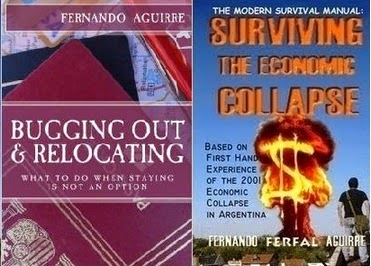
It’s no big secret that food is a crucial part of any preparedness plan. As far as stocking up supplies goes, right after water the thing that should concern you the most is food.
The first piece of advice you usually get is store what you eat, eat what you store, and it really isn’t a bad advice to follow. Granted, if Burger King is what you eat most of the time then you might want to reconsider what constitutes your diet. Still, take a look at what you eat in your household, especially shelf-stable food such as canned and dry goods. Buying extra and building up a few weeks worth is a good start. Eventually you want to build up a supply not just for a few weeks but a few months. So you check rice, beans, pasta, see the cheap price, see the calories and nutritional value and yes, I indeed do recommend stocking up on these three. But the question is: How much do you need? Here’s where I’d like to take a moment and discuss a bit your actual caloric needs.
The FDA (and everyone else it seems) works with a Daily Reference Value of 2000 calories a day. Of course each person is different and has a different ideal daily caloric intake but 2000 is what keeps the average adult healthy and fit. Now, preppers and survivalists tend to let their fantasy run wild and this is no different. Doomsday folk says that… after SHTF, the brave survivor will spend his days fighting raiders, working the land growing crops, wrestling with bears and building log cabins… all day long. They’ll say 2000 calories is what skinny city folk need, not a hardy homesteader. There’s several problems with this misconception. First, its simply not true. Most people that think this way could use to drop some calories themselves. Granted, an elite athlete needs 4000 to 5000 calories, but do you earn a living as a professional athlete? If the answer is no then don’t assume that will change any time soon. Second, not knowing how many calories you really need means you miscalculate how long your supply will last and how much you should spend to put aside the desired amount. If this is also applied to how much you actually end up eating then you’ll start gaining more weight at a time when you want to be as fit as possible.
Even though 2000 calories is the commonly used standard, most people can get by with considerably less. A 1500 calorie diet is considered a safe way of losing weight and staying lean. More extreme diets go for 1200 or less. Keep in mind people are all different. A small frame +50 year old woman may gain weight with 1500 calories, even when staying active.
If a 2000 calorie diet keeps you alive and healthy that doesn’t mean you can’t get by with less. If you reduce it to 1800 for example, you wont starve to death, you’ll just lose weight and stay thinner, and this may not be a bad thing to do. CRON diet (Calorie Restriction with Optimal Nutrition) followers go for 20-30% less calories. A calorie restricted diet with optimal nutrition actually keeps you healthier and even slows down aging, extending life. Bodies are different, so are lifestyles and caloric demands, but having said that we are all more alike than we like to admit. If 2000 calories per adult is an accepted average standard, the truth is that most people can go for years with less. If for example you store 2000 calories per person and all of a sudden you need to extend that, there’s a good chance that you can consume 1500 calories per day and extend your supply 25% without starving to death.
Take all of this into account when planning how many calories you really need to stock up and how you plan on using them.
FerFAL
Fernando “FerFAL” Aguirre is the author of “The Modern Survival Manual: Surviving the Economic Collapse” and “Bugging Out and Relocating: When Staying is not an Option”.







No comments:
Post a Comment